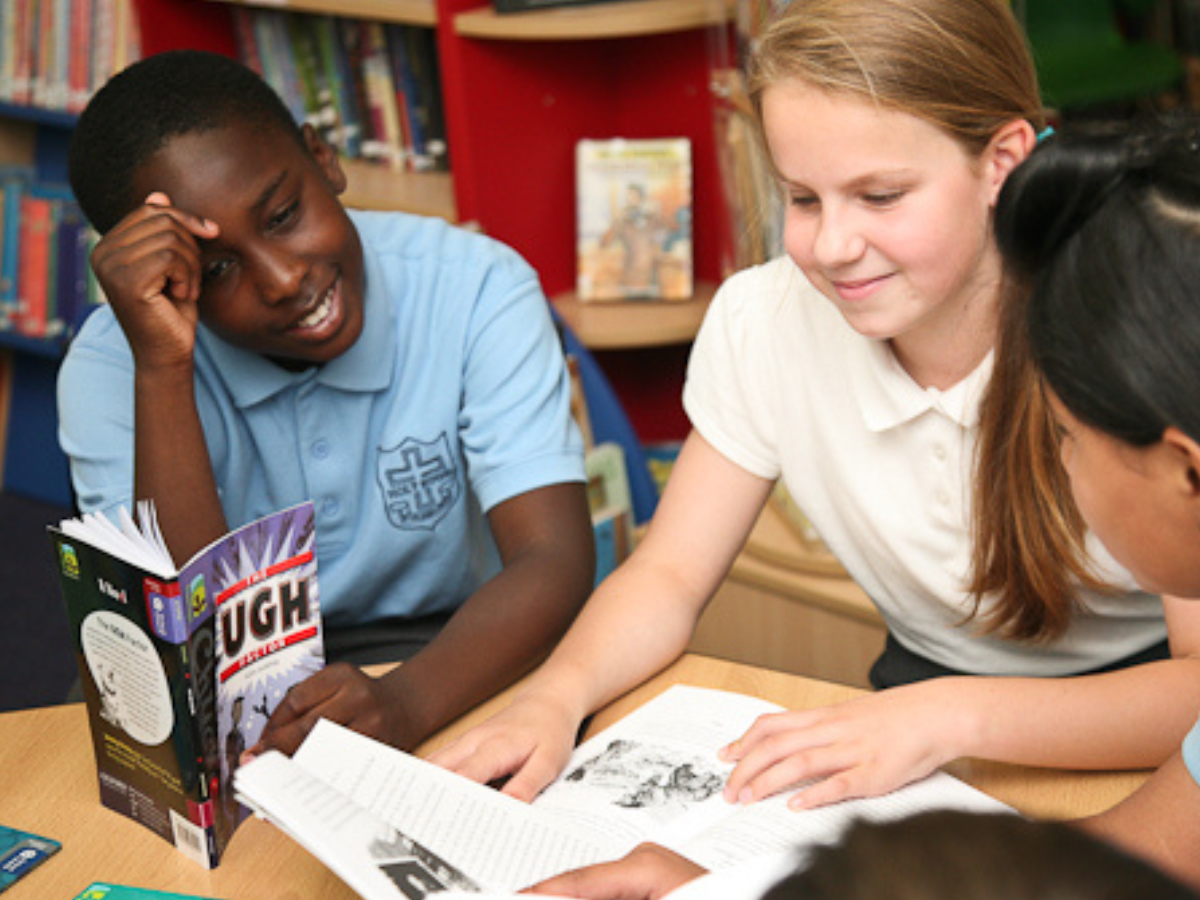It’s easy to think that once children can decode without trouble the main job is done. But the job of building fluency must continue. Not least because fluency is so closely connected with comprehension, and comprehension is the ultimate goal of all reading. Oh, and it’s also what children are assessed on in SATs…
In the 2023 SATs, the percentage of children achieving the expected level in reading dropped from 75% to 73%, meaning that not far off a third of children left primary school unready to deal with the many reading demands waiting to greet them on the next leg of their learning journey.
Why did the 2023 SAT trip up so many children? It could have been because there was so much to read! The combined texts and questions amounted to over 3400 words. If children were reading at the minimum expected rate for their age of 90 words per minute, it would have taken them 37 minutes just to read the paper once, leaving them just 21 minutes to answer the questions – that means completing one question every 34 seconds! No wonder some children found it hard. Those children who had practised and built up their fluency and achieved a good reading rate would have had a significant advantage in the assessment.
So, how do you build reading fluency, stamina and pace in junior children?
- Continue to use the techniques and strategies used in the earlier years. Repeated oral reading is the most effective way to build fluency even in the junior years. This can take the form of echo, mumble or choral reading. Use increasingly challenging texts to keep seeing progress.
- You get better at what you practise, so make sure children are given texts that motivate them to read – books that are diverse and inclusive for all children as well as being entertaining. This is especially important if you are asking them to repeat-read and perform bits of it in groups or with partners.
- Don’t let children’s progress stall by allowing them to read books that are too easy for them too much of the time. (Sometimes is fine!) If children are to improve their fluency, they need to encounter texts that present them with increasingly challenging features: new words, more complex language structures, less familiar ideas, more complex plots, etc.
How can Oxford Primary help?
Keep all junior readers motivated to practise and build their fluency with increasingly challenging texts from TreeTops Reflect.
Chucklers is a collection of laugh-out-loud books that make reading a pleasure for junior readers, encouraging even the most reluctant children to read.
Handpicked stories by world famous author Michael Morpurgo, Greatest Stories is a timeless collection to captivate children, developing and extending their reading experiences.
Explore next in our fluency blog series:
References
‘What might fluency practice look like in the classroom?’, Improving Literacy in Key Stage 1 Guidance Report, Education Endowment Fund
Tracey Smith Issues in Primary Education 2023 onwards (training), 2023
More blogs from Oxford Primary Literacy:
- Getting started with ELS Progress: Phonics catch-up programme
- Everything you need to know about ELS Essential Spelling
- How to get your classroom ready for Read Write Inc. Phonics
- DfE Reading Framework: 7 key take-aways for schools
- What’s next after Read Write Inc. Phonics?
- Helping you and your children prepare for the phonics screening check
